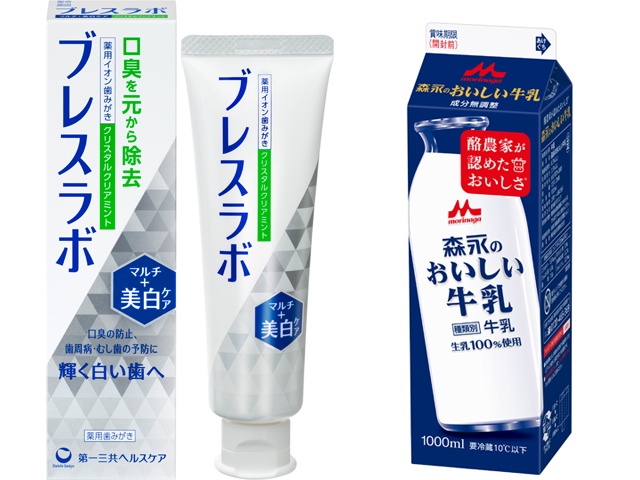
We take Breath Labo to the lab.
Our mouths go through a lot during an average day. We’re always cramming food and whatnot in them, and even the air we breathe is full of all kinds of particles for a rather sordid blend of who-knows-what. That all has to have an effect on the way we taste food as well, but we usually don’t think about that much. We don’t swish water around our mouths and spit it out before eating meals like a wine taster might, but maybe we should?
To explore this idea further, Japanese toothpaste brand Breath Labo and major milk brand Morinaga no Oishii Milk have teamed up to see if fresh breath can make a glass of milk taste even better.
▼ Breath Labo comes in a range of types.
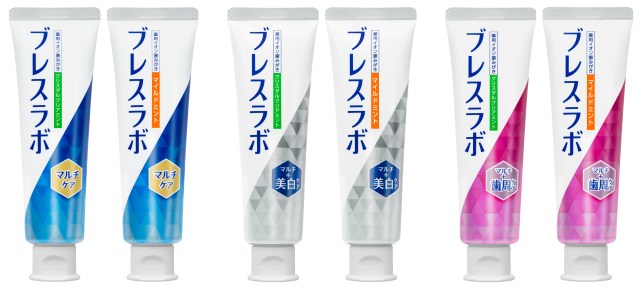
The two companies recruited 100 people to brush their teeth with Breath Labo and then drink some Morinaga no Oishii Milk, and asked for their opinions. Of those surveyed, 78 percent said they felt brushing their teeth made the milk taste significantly richer and crisper, and a further 21 percent said that it did so to a certain extent. That amounts to 99 percent who felt brushing with Breath Labo improved the taste of milk, at least a bit.
This all seemed kind of far-fetched to me. I could understand how a cleaner mouth can enhance our ability to taste, but the trade off here is that toothpastes often have strong flavors of their own that interfere with and sometimes downright ruin the taste of foods consumed shortly after brushing.
I decided to see for myself and set out to buy some Breath Labo toothpaste and Morinaga no Oishii Milk. However, when I got to the drug store, I found this particular toothpaste cost 980 yen (US$6.62) a tube. After shouting, “In THIS economy?!” I stormed out of the drug store but remembered I still needed milk and stormed back in. That was also a bust because they only had low-fat Morinaga no Oishi Milk.
I figured since I was judging the richness, it would be better to go with a normal-fat milk instead. So, I ended up buying a carton of 7-Eleven store-brand milk that was nearing its expiry date, not because I wanted to save money, but because I wanted to protect the Earth from wasted milk.

The trick to this possibly working is that Japanese toothpaste tends to have a milder, less minty taste to it. This means that the cleansing effect might outweigh the taste distortion. To test this out, I used my go-to Kenketsu-chan toothpaste that they give me when I donate blood. In a way, this toothpaste is priceless, because I paid for it in blood.
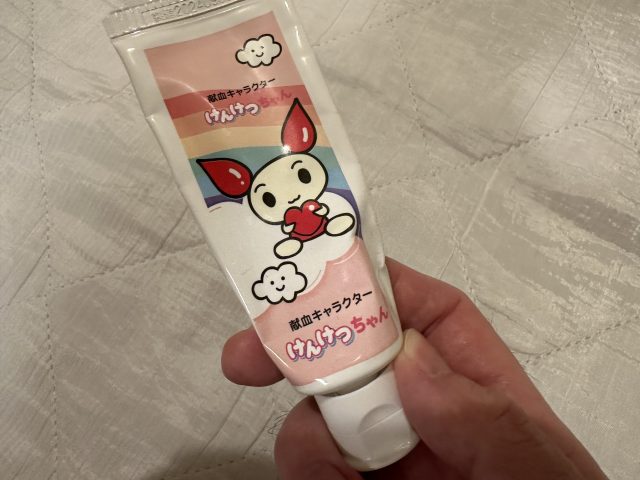
▼ For the record, Kenketsu-chan toothpaste is actually just Ora2, a widely sold brand by Sunstar.
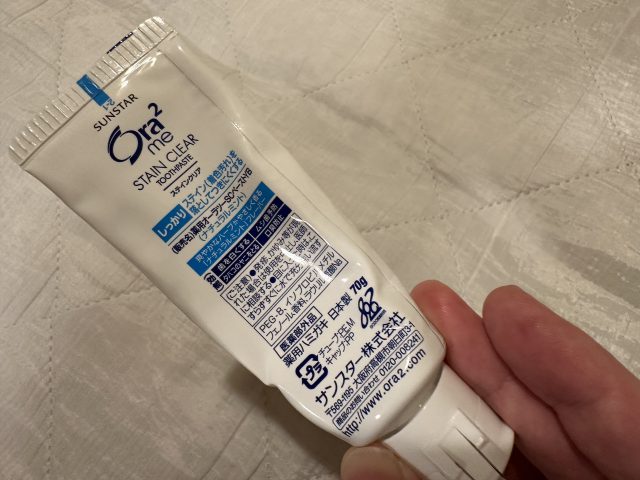
I took a swig of the 7-Eleven milk and was actually surprised by its rich sweetness. I then brushed with Kenketsu-chan, waited about half an hour, and tried some more milk. However, it was not better than before brushing. It wasn’t especially bad, but it felt like the aftertaste of the toothpaste cancelled out certain notes in the milk’s flavor, making it less rich than before.
The next morning, I tried the experiment again, this time using some Colgate Total from the USA by way of Canada. They tend to cram a lot more stuff in this toothpaste compared to Japanese brands, both in terms of taste and bacteria-fighting ingredients, so it could go either way.
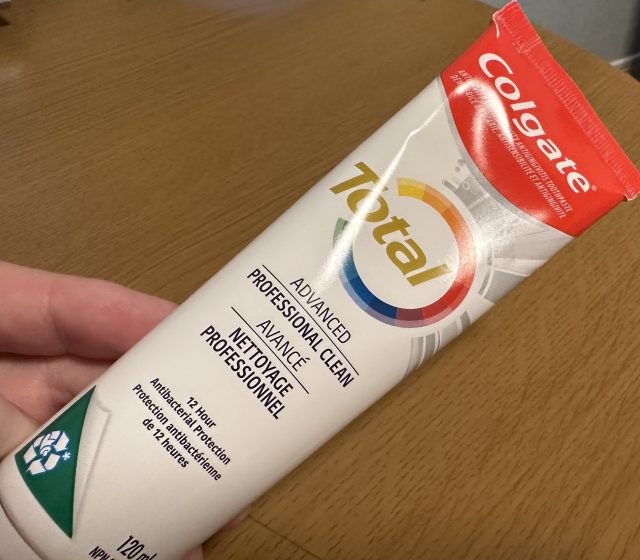
Once again, I had some 7-Eleven milk, and it tasted even better than the night before as the crisp beverage soothed my sleep-parched throat. I then brushed with the Colgate, waited about half an hour, and then drank some more milk, but once again, there seemed to have been a subtraction in flavor. Strangely enough, this time the diminished taste was mainly detected on the sides of my tongue.
Up to this point, it looked as if the Breath Labo and Morinaga study was not all it was cracked up to be. I read it again just to be sure and found that it was users of Breath Labo specifically who reported improved tastes in milk and other foods, rather than toothpaste in general. The reason is that Breath Labo toothpaste has a certain formula specifically designed for a precision assault on the elements that pollute mouths with bad breath.
Not wanting to leave this matter without it being thoroughly examined, I returned to the drug store, and shelled out for a tube of Breath Labo under protest.
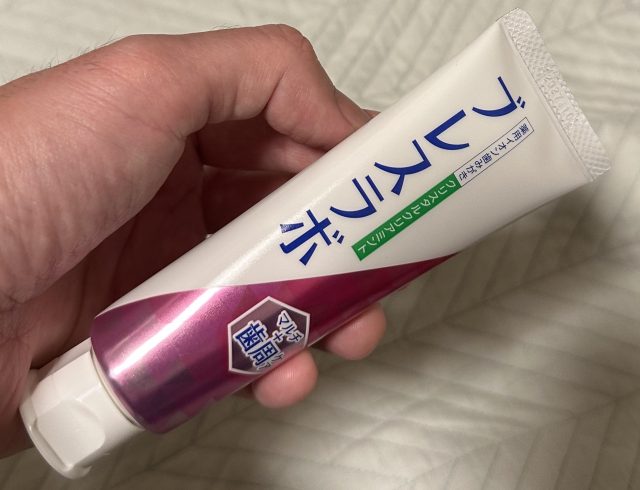
So, once again, I had some 7-Eleven milk, and it tasted as good as usual. I then brushed with Breath Labo and waited about half an hour. This toothpaste was a little different and had a kind of sour tinge to it rather than a minty flavor.
Then, when I went for my second drink of milk, I was taken aback.
▼ Dang…
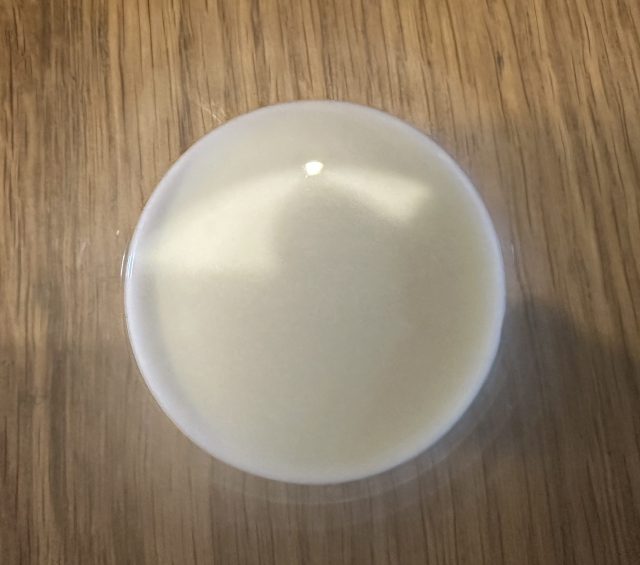
I honestly wish I could say this wasn’t the case, but the milk did taste better. It wasn’t an enormous difference, but it was enough that I could say with certainty that it was more flavorful. This left me really conflicted, because I’m still grappling with the thought of paying 980 yen for some toothpaste and have trouble recommending you all to go out and buy it too.
But I cannot change the fact that it did make milk taste better. I understand if you don’t believe me. I don’t even want to believe it, but it happened. In fact, even Breath Labo and Morinaga understand people would have trouble believing this and started a social media campaign where people can sound off about it and possibly win a 5,000 yen ($33) gift certificate regardless of how they feel.
▼ Just follow this account and make a post saying whether you believe it (#信じる派?) or not (#信じられない派?).
\あなたは 信じる派? 信じない派?/
— 【公式】ブレスラボ_PR (@breathlabo_pr) July 28, 2025
「朝、森永のおいしい牛乳を一口の前に
ブレスラボで歯みがきをすると
牛乳本来のコクを感じやすいってホント..?」
投稿してくれた方の中から抽選で
QUOカードPay5,000円分をプレゼント
応募方法
① @breathlabo_prをフォロー
②選択肢を選んでポスト
It might be a good idea to try winning the contest and then using that money to buy this expensive toothpaste.
Source: PR Times
Featured image: PR Times
Insert images: PR Times, ©SoraNews24
● Want to hear about SoraNews24’s latest articles as soon as they’re published? Follow us on Facebook and Twitter!








